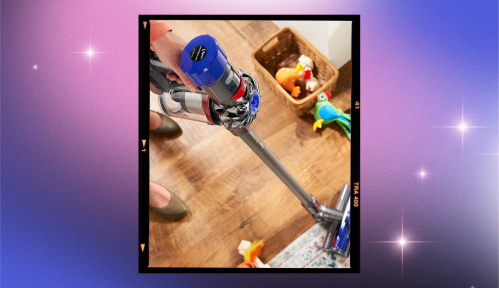Our editors independently select these products. Making a purchase through our links may earn Well+Good a commission
Since March 2020, you’ve likely gone very few days without hearing the word “unprecedented.” It’s become largely synonymous with the pandemic itself, reflecting the sense of unfamiliarity with what’s happening and unknowingness of what lay in wait. And according to recent research, that haziness has begun to cloud our personal lives, too, leading many folks to experience what psychologists call decision paralysis, or the struggle of trying to make decisions—even small daily ones, like what to eat for dinner—while *gesticulates wildly* all of this is going on. The survey of more than 3,000 adults conducted by the American Psychological Association in August found that 32 percent of people are experiencing such decision paralysis in light of the pandemic.
Experts in This Article
clinical psychologist, life fulfillment expert, and author of Date Smart, Joy From Fear, and Aging Joyfully
neuroscientist, mental health expert, and host of Cleaning Up The Mental Mess
“The pandemic’s seemingly never-ending repercussions create hypervigilance,” says clinical psychologist Carla Marie Manly, PhD, author of Joy From Fear. Essentially, we’re more likely now to scan any decision for potential defects or downsides than we might have been in pre-pandemic times, mostly because so many previously inconsequential choices now carry outsize consequences.
“Before the pandemic, simple activities such as going to the store or joining an exercise class didn’t require much thought or decision-making because we didn’t live in fear of spreading or contracting a life-threatening illness,” says Dr. Manly. “But now, even the simplest social events leave us faced with a variety of often-uncomfortable decisions, as well as potential judgment for deciding to engage or not to engage with safety protocols.”
In weighing the potential outcomes for these decisions big and small, we also have to contend with the fact that many of them fall outside our scope of control. It’s that loss of autonomy that cognitive neuroscientist Caroline Leaf, PhD, author of Cleaning Up Your Mental Mess and founder of the NeuroCycle stress-management app, credits as one of the root causes of decision paralysis, particularly throughout the pandemic. Feeling out of control can decrease our sense of hope and empowerment, and in turn, negatively affect our ability to think clearly, she says—no matter the actual size or magnitude of the decision at hand.
“Our psyches and bodies are depleted as a result of our constant efforts to make the right calls, despite the eerie feeling that even our best-made decisions won’t give us the stability and relief we truly crave.” —Carla Marie Manly, PhD
The lasting reality of living amid the pandemic has now begun to generate a sense of baseline anxiety and stress, too (even as the release of vaccines has lessened the risk of day-to-day activities). And that can spark decision paralysis, in and of itself. “When stress levels are unremitting, we begin to feel burnt out emotionally, mentally, and physically,” says Dr. Manly. “Our psyches and bodies are depleted as a result of our constant efforts to make the right calls, despite the eerie feeling that even our best-made decisions won’t give us the stability and relief we truly crave.”
That said, in the case of day-to-day decisions that actually don’t carry such consequence, it’s possible to gain decisiveness with a shift in perspective. Below, the experts share their best advice for escaping pandemic-induced decision paralysis.
How to cope when even the smallest decision feels overwhelming
1. Try pretending you’re someone else, and view your decision from that perspective.
Taking a mental step back from the situation can help you to see it more clearly, says Dr. Leaf. “If we consciously observe our thinking, feeling, and choices as though we are watching someone else, it can help calm the mind, which, in turn calms the frontal lobe of the brain,” she says. It’s an act that slows you down in the moment, which can also ensure that you don’t simply make the first decision that pops into your mind—which may be one generated by stress or fear, and not actually the best call.
2. Remind yourself that it’s normal to struggle with decisions right now.
The simple act of accepting that decision fatigue is happening whenever it does, rather than getting down on yourself for being indecisive, can help you avoid any additional stress. “We need to recognize that our reactions to the pandemic are normal and need to be processed, not labeled as diseases or suppressed,” says Dr. Leaf.
3. Subject small decisions to random chance.
The power of a coin-flip is immense: Often, the second that the coin goes flying into the air, you know which side you’re hoping it will land on—and ultimately, which choice you should make. So, Dr. Manly suggests giving yourself two relatively good options for something like dinner or a movie, flipping a coin, and letting it decide (or, simply choosing the opposite, if you have an epiphany mid-flip).
4. Enlist a loved one.
Leaning on someone you trust is always a helpful go-to when nothing you can do seems to un-cloud your mind. “For example, if you know that clothing decisions tend to add to your stress, ask a good friend to help you pick out a few go-to outfits whenever you’re both in a relaxed mood,” says Dr. Manly. Then, the next time you can’t decide, you can take comfort in the fact that you have ready-made options at your disposal.
Oh hi! You look like someone who loves free workouts, discounts for cutting-edge wellness brands, and exclusive Well+Good content. Sign up for Well+, our online community of wellness insiders, and unlock your rewards instantly.
Sign Up for Our Daily Newsletter
Get all the latest in wellness, trends, food, fitness, beauty, and more delivered right to your inbox.
Got it, you've been added to our email list.











